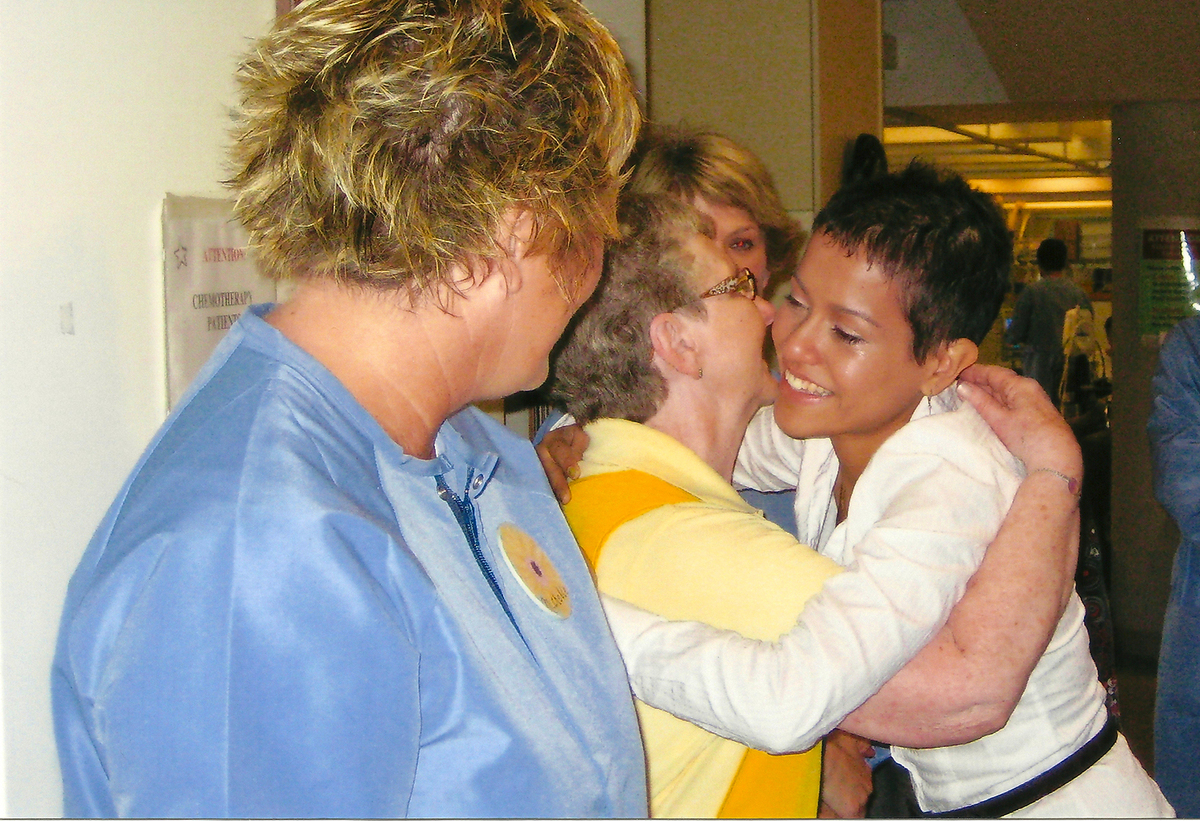
My last chemotherapy session at the London Health Sciences Centre, surrounded by the wonderful nurses and Canadian Cancer Society volunteer.
As I write this first blog and reflect upon my journey of wrestling with the meaning of life, I credit my experience with cancer that threatened my mortality, as the catalyst that fueled my spiritual quest and has over the years, led me to rethink my Christian faith. Prior to my diagnosis, I had relegated my spiritual life to a corner while I pursued other forms of fulfillment that, whether I wanted or not, were informing my life’s meaning. Having just turned 20 while starting to enjoy the new freedoms university life provided, I was very focused on seeking academic success, social acceptance, physical attractiveness, and the personal freedoms and fun that come with living on your own for the first time. My focus on such things may sound perfectly normal. Afterall, our culture has long promoted the idea that they key to the pursuit of happiness lies in the areas of financial, professional & personal success, improvement of self, popularity, personal freedoms among other things.
Here I found myself in the cusp of my youth, dreaming up my future and in the midst of forming my own identity but it was now all being threatened. This confrontation with mortality would eventually help me realize that when the pursuits mentioned above, form the foundation of “happiness” – what many believe gives life its ultimate meaning - we can quickly become enslaved to reaching for the top or if already there, keeping up with our achievements. It’s interesting that it’s usually in the midst of our suffering that the futility and shallowness of this path is exposed. When we fail to address life’s biggest questions – Why am I here? What is the Meaning of Life? Does God Exist? Do All Religions Lead to God? Why is There Evil? Is There Life After Death? – we are at best, building our life on sandy foundations, becoming vulnerable to the mildest gust of wind threatening our collapse, or at worst, left questioning our existence altogether. Even when answers are offered but don’t match our reality or expectations, we are still often left utterly unprepared to deal with the consequences of living in a broken world where suffering exists and for which its fruits will sooner or later personally affect us, whether through tragedy, injustice and/or broken relationships.
Living with cancer led me to ponder these uncomfortable questions – questions for which only theology (nature of God) and philosophy (nature of knowledge, reality, and existence) can hope to offer an answer. Afterall, science only answers the mechanic ‘how’ questions and it itself requires faith/belief in certain unproven assumptions about the world, in order to carry on its work. I mean uncomfortable in that when seeking answers to these questions, personal autonomy and intellectual/emotional integrity run a great risk. The possibility of finding objective truths that could run contrary to my own is off-putting in today’s culture of which I am a by-product, which exalts our individual freedoms and right to proclaim our truth, above all else. For a time, this quest led me toward the New Age movement, a religious belief known for its eclectic mix of ideas borrowing from mysticism and different religions. After completing my chemotherapy treatment and being declared cancer free, I continued to stake my happiness on much of the same I had once pursued, though only this time from a more admirable angle, in areas of holistic wellness, moral self-improvement and social justice. Though undoubtedly important, these were all still ‘pursuits’ that could only ground my value, identity and purpose in my achievements and abilities as a person – but what if those were threatened again? A slow realization of this eventually caused a disillusionment with answers within the New Age movement and opened a window for me to re-think the claims of Christianity. Through a series of blogs, I will share my journey wresting with life’s biggest questions.
